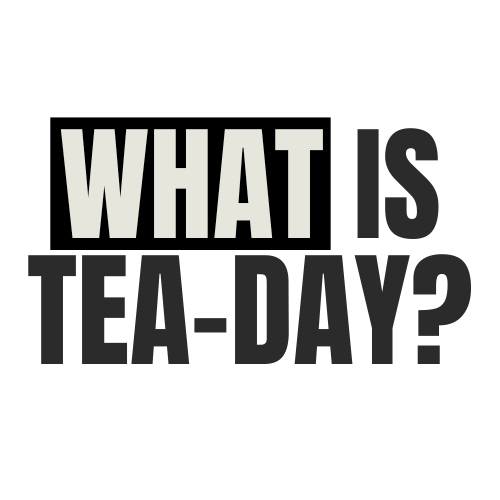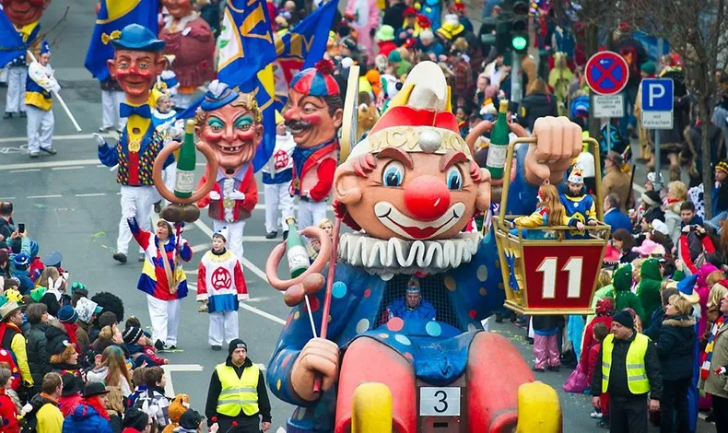Veterans Day
Veterans Day, observed annually on November 11th, honors military veterans who have served in the United States Armed Forces. It originated as Armistice Day in 1919, marking the first anniversary of the end of World War I. In 1954, the holiday was renamed Veterans Day to recognize all U.S. veterans, not just those who served in WWI. Celebrations include parades, ceremonies, and moments of reflection to thank veterans for their service and sacrifices. Unlike Memorial Day, Veterans Day honors both living and deceased veterans.

Fasching
Fasching is a traditional German carnival season, similar to Mardi Gras, celebrated primarily in Catholic regions of Germany, Austria, and Switzerland. It typically begins on November 11th at 11:11 a.m. and culminates in a week of parades, masquerade balls, and festivities leading up to Ash Wednesday, marking the start of Lent. The highlight of Fasching is Rosenmontag (Rose Monday), filled with vibrant parades, costumes, and lively celebrations. Fasching often features satirical floats, music, and sweets, embodying a festive and carefree spirit before the somber Lenten season.

Origami Day
Origami Day is celebrated every year on November 11 to honor the ancient Japanese art of paper folding. It’s a day for creativity, mindfulness, and cultural appreciation, inviting people worldwide to transform simple sheets of paper into intricate designs like cranes, flowers, and animals. Origami Day was officially declared in 1980 by the Nippon Origami Association (NOA) in Japan as Origami no Hi (折り紙の日). The date November 11th was chosen because: It coincides with World Peace Day (marking the end of WWI in 1918). The numerals “1-1-1-1” symbolize the equal sides of the square paper used in origami. Origami’s roots trace back to 6th-century Japan, where it began as a ceremonial practice before evolving into an art form and educational tool. The story of Sadako Sasaki and her thousand paper cranes after WWII cemented origami as a global symbol of peace and hope.

Key Historical Events on November 11
1858 – Opening of the London Necropolis Railway
This special railway transported deceased individuals and their mourners to the Brookwood Cemetery in Surrey, England.
1918 – Armistice Ends World War I
The Armistice of Compiègne was signed, ending fighting on the Western Front. This date later became Armistice Day and is now observed as Veterans Day in the U.S. and Remembrance Day in Commonwealth nations.
1919 – First Observance of Armistice Day
One year after World War I ended, nations began commemorating the peace treaty.
1921 – Tomb of the Unknown Soldier Dedicated
The U.S. dedicated the Tomb of the Unknown Soldier at Arlington National Cemetery to honor unidentified military personnel.
1940 – Blizzard in the Midwest
A devastating blizzard struck the U.S. Midwest, killing over 150 people in Minnesota, Wisconsin, and surrounding states.
1975 – Angola Gains Independence
Angola declared independence from Portugal after years of anti-colonial struggle.
2004 – Death of Yasser Arafat
The Palestinian leader and Nobel Peace Prize laureate passed away in Paris, marking a turning point in Middle East politics.
Notable Births
1493 – Paracelsus
Swiss physician, alchemist, and astrologer, considered one of the fathers of modern medicine.
1821 – Fyodor Dostoevsky
Renowned Russian novelist and philosopher, famous for works like Crime and Punishment and The Brothers Karamazov.
1885 – George S. Patton
Influential American World War II general, known for his leadership in the European theater.
1922 – Kurt Vonnegut
American author of classics such as Slaughterhouse-Five, blending satire, science fiction, and humanist themes.
1974 – Leonardo DiCaprio
Academy Award-winning actor, known for films like Titanic, The Revenant, and Inception.
Notable Deaths
397 – Saint Martin of Tours
A prominent Christian saint known for his piety and charity, often associated with St. Martin’s Day.
1855 – Søren Kierkegaard
Danish philosopher and theologian, considered a father of existentialism.
1880 – Ned Kelly
The infamous Australian outlaw and folk hero was executed for his crimes.
1990 – Attilio Demaría
Italian-Argentine footballer who played in the inaugural FIFA World Cup in 1930.


